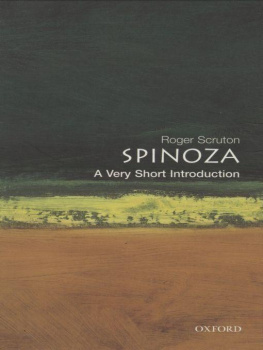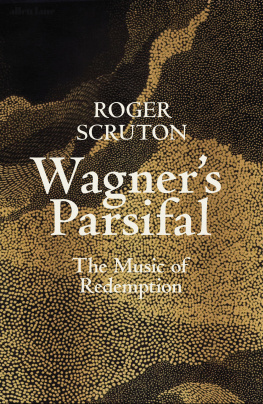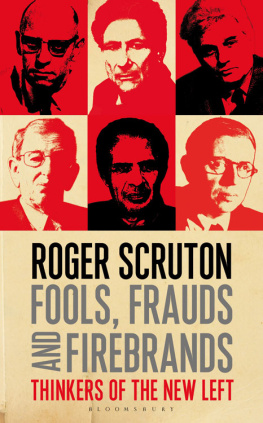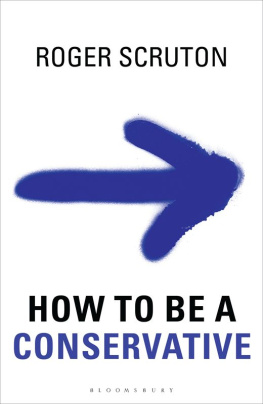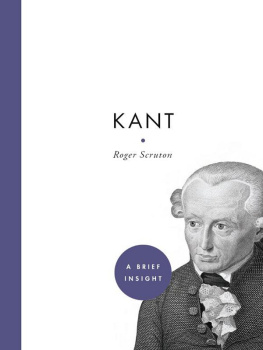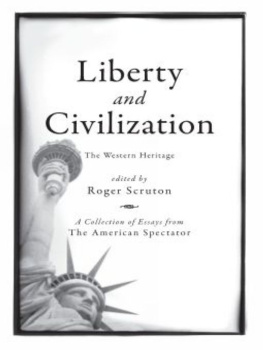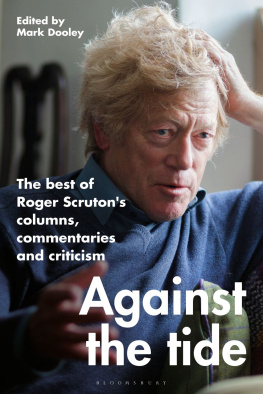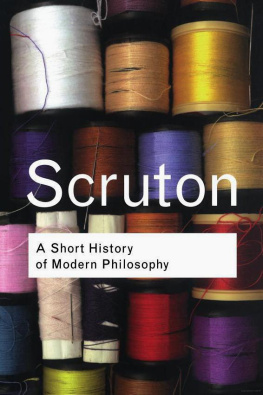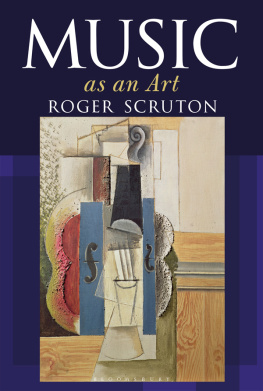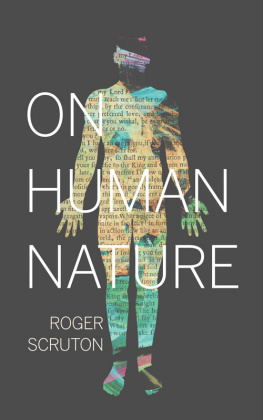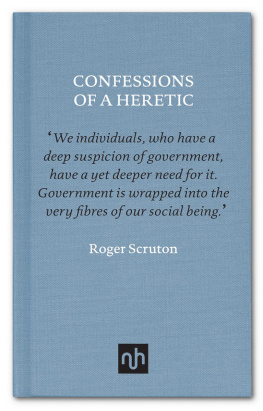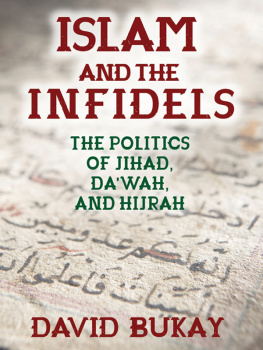THE WEST
AND
THE REST
G LOBALIZATION AND THE
T ERRORIST T HREAT
ROGER SCRUTON

W ILMINGTON , D ELAWARE
C ONTENTS
P REFACE
S AMUEL H UNTINGTONS celebrated thesis that the Cold War has been succeeded by a clash of civilizations has more credibility today than it had in 1993, when it was first put forward. For many observers, reflecting on the calamity of September 11, the world has divided into two spheresthe sphere of freedom and democracy, and the sphere of despotism, failed states, and religious zeal. This reverses the familiar Islamic division, between the dar alislam and the dar al-harb: the house of submission and the house of war. And it reflects a habit of mind against which Huntington and others have warned. Western universalism, as Huntington calls it, sees the whole world in terms of values that have their origin, meaning, and natural climate in what is in fact only a small (though admittedly noisy) part of it. To transfer those values to places that have been deeply inoculated against them by culture and custom is to invite the very confrontation that we seek to avoid.
Others write of Western decadence and loss of direction, implying that our civilization lacks the spiritual and moral resources to defend itself against the new terrorist threat. But, apart from the vague reference to Spengler and Toynbee contained in the word Western, very little thought has been expended on what seems to me to be the real question: What exactly is Western civilization, and what holds it together? Politicians, asked to define what we are fighting for in the war against terrorism, will always say freedom. But, taken by itself, freedom means the emancipation from constraints, including those constraints which might be needed if a civilization is to endure. If all that Western civilization offers is freedom, then it is a civilization bent on its own destruction. Moreover freedom flaunted in the face of religious prohibitions is an act of aggression, inviting retribution from those whose piety it offends.
Islamic civilization involves a common religious belief, based on a sacred text whose law may be misapplied but never altered. It defines itself in terms not of freedom but of submission. Islam, salm, and salaamsubmission, peace, and safetyall derive from the verb salima, whose primary meaning is to be secure, unharmed, or blameless, but which has a derived form meaning to surrender.Europe and America.
Western civilization also grew from a common religious belief and a sacred text, and, like Islam, originated in a religious movement among Semitic peoplealbeit people living under an imperial yoke, for whom submission was already a day-to-day reality. Western civilization has left behind its religious belief and its sacred text, to place its trust not in religious certainties but in open discussion, trial and error, and the ubiquitousness of doubt. But the odd thing is that, while Islamic civilization is riven by conflict, Western civilization seems to have a built-in tendency to equilibrium. Freedoms that Western citizens take for granted are all but unheard of in Islamic countries, and while no Western citizens are fleeing from the West, 70 percent of the worlds refugees are Muslims fleeing from places where their religion is the official doctrine. Moreover, those refugees are all fleeing to the West, recognizing no other place as able to grant the opportunities, freedoms, and personal safety that they despair of finding at home.
Equally odd, however, is the fact that, having arrived in the West, many of these Muslim refugees begin to conceive a hatred of the society by which they find themselves surrounded, and aspire to take revenge against it for some fault so heinous that they can conceive of nothing less than final destruction as the fitting punishment. Odder still is the fact that those Muslims who settle down, integrate, and acquire some kind of loyalty to Western institutions and customs often produce children who, despite being brought up in the West, identify themselves in opposition to itan opposition so fierce as again to verge on the desire for annihilation.
A superficial response to these disturbing facts is to put the blame on Islamto argue, with an undeniable degree of plausibility, that Islam is a medieval fossil, unadapted to modern conditions, and unable to adjust to the enormous social, economic, and demographic changes that have shaken our planet. But then modern conditions are precisely those conditions which result from the global outreach of Western technology, Western institutions, and Western conceptions of political freedom. Why blame Islam for rejecting them, when they, in their turn, involve a rejection of the idea on which Islam is foundedthe idea of Gods immutable will, revealed once and for all to his Prophet, in the form of an unbreachable and unchangeable code of law?
In this book I explore the vision of society and political order that lies at the heart of Western civilization. And I try to show how the apparent conflict with Islam is fed by the decay of that vision, and the loss of the political loyalty on which it depends. When distinguishing the rest from the West I do not mean to imply that there is a unified antipathy to the Western way of life, or that the world is divided into opposing camps, as perhaps it was during the Cold War. However, it seems to me that there is a great difference between those parts where the Western political project has taken root, and those where it has not. I focus on Islam, since it offers such a clear alternative to that project, one with a history of successes as well as failures. Today the failures prevail: and this is one source of our present danger. For failure is no longer localized in the place that produced it, but carries its burden of resentment around the world.
My theme in what follows is not historical; nor do I deal in any depth with the movements or individuals that occupy the stage of modern politics. My concern is primarily conceptual: to understand the kinds of order and disorder that emerge when the resources and techniques of modern life are severed from the political process that might otherwise control themthe political process that defines what is known as the West.
Malmesbury, spring 2002
CHAPTER 1
T HE S OCIAL C ONTRACT
T HE WORD RELIGION derives from the Latin religio, the root of which, according to a disputed ancient tradition, is ligere, to bind. Looked at from the outside, religions are defined by the communities who adopt them, and their function is to bind those communities together, to secure them against external shock, and to guarantee the course of reproduction. A religion is founded in piety, which is the habit of submitting to divine commands. This habit, once installed, underpins all oaths and promises, gives sanctity to marriage, and upholds the sacrifices that are needed both in peace and in war. Hence communities with a shared religion have an advantage in the fight for land, and all the settled territories of our planet are places where some dominant religion has at some time staked out and defended its claims.
But religion is not the only form of social binding. There is also politics, by which I mean the government of a community by man-made laws and human decisions, without reference to divine commands. Religion is a static
However, the contest between religion and politics is not in itself a modern one. This we know not only from the Bible, but also from Greek tragedy. The action of Sophocles
Next page

